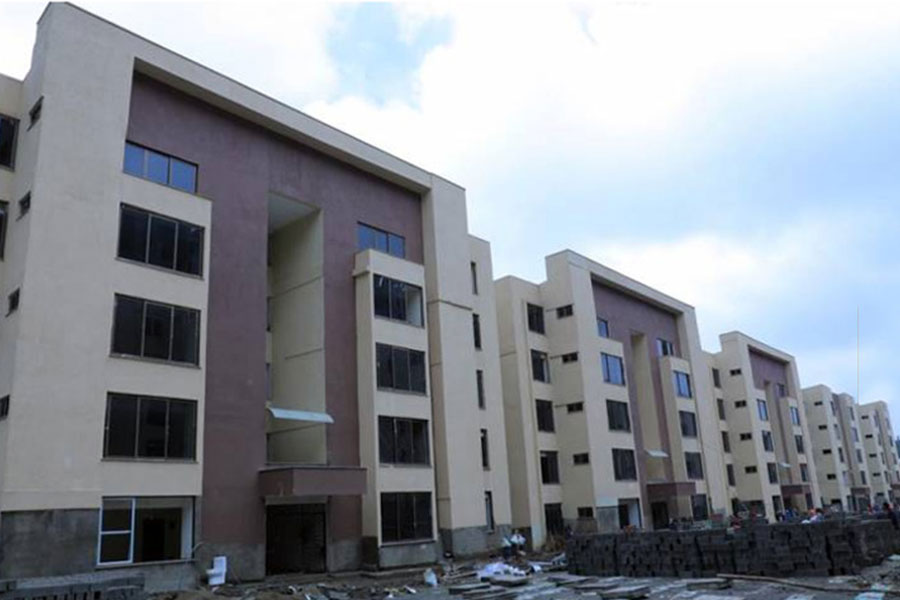
Editorial | Aug 27,2022
Nov 9 , 2024
By Eden Sahle
At least four days a week, my family and I visit supermarkets in the capital to buy groceries. We frequent supermarkets where the staff are usually friendly and helpful. But the same cannot be said for the vegetables, which are usually coated in thick layers of red mud, usually hiding signs of rot underneath.
In nearly every supermarket we have visited, vegetables like potatoes, beets, sweet potatoes, carrots, garlic, and onions are encrusted with dried mud, forming an impenetrable layer that makes it impossible to assess their quality. Leafy greens like lettuce, kale, and cabbage are not exempt either, all covered in grime that brings dirt and potential health hazards right into our kitchens.
After spending time shopping, it is frustrating to go through the tedious process of scrubbing the vegetables in hot water, only to discover that they are spoiled and unusable. Curiously, some upscale supermarkets in areas like Bole and Old Airport manage to offer noticeably cleaner produce, which makes us wonder why there is such a stark difference in quality.
The unappetising appearance of mud-covered vegetables deters shoppers from buying them. It is not uncommon to see people handling the vegetables, cringing at the earthy smell and caked-on dirt, before leaving empty-handed. Even young children stand beside the vegetable shelves, staring in confusion at produce that looks nothing like the illustrations in their storybooks. One can only imagine the challenge for parents trying to convince these children to eat vegetables that look anything but appealing.
A surprising contrast can be found on street corners across the city, where vendors sell fresh produce under white tents at more affordable prices. Their clean, vibrant displays make it easy to see the freshness of their vegetables, drawing people from afar. In these open-air markets, vendors often take the time to scrub their produce before displaying it, adding to its appeal.
Despite the popularity of these roadside vendors, their locations on busy roadsides or roundabouts with limited parking make it difficult for many to access them. For those of us who rely on supermarkets, driving past these displays of fresh, mud-free produce leaves us wishing for similar quality in the stores we frequent.
The aversion to muddy vegetables is more about hygiene and convenience than aesthetics. When we see mud on vegetables, it reminds us of the germs, contaminants, and diseases that might lurk within. Clean produce, on the other hand, suggests ease of preparation and a higher standard of quality, appealing to our natural preference for food that looks ready to be cooked and enjoyed.
Agricultural experts tell us, however, that leaving some soil on vegetables—especially root vegetables like potatoes and carrots—can help them retain moisture, extending their shelf life. Supermarkets may be inclined to leave the mud on for this reason, aiming to keep their stock fresh for as long as possible. For some, the sight of mud may even signal that the produce is "farm fresh" and recently harvested.
But there is more to muddy vegetables than meets the eye. Soil can harbour bacteria, parasites, and pesticide residues, posing potential health risks, especially with raw, leafy greens like lettuce and spinach, where dirt can easily get trapped in crevices. The hardened mud creates messes in the kitchen, clogging sinks and causing unwanted dirt buildup.
Supermarkets may overlook an important fact: instead of extending shelf life by keeping vegetables coated in dirt, offering clean produce could attract more buyers who might buy it quickly and return frequently. Bright, clean vegetables appeal to our senses, signalling ripeness and freshness, qualities that we naturally associate with higher nutrition and better taste.
People eat with their eyes first while presentation is key. The visual appeal of unblemished, mud-free produce impacts our perception of quality and taste, making vegetables more appetising. Clean, colourful vegetables improve our enjoyment of eating and contribute to a healthier lifestyle, making them a superfood that nourishes both body and mind.
PUBLISHED ON
Nov 09,2024 [ VOL
25 , NO
1280]

Editorial | Aug 27,2022

Sunday with Eden | Apr 03,2021

Radar | Jul 06,2019

Editorial | Aug 31,2019

My Opinion | Feb 25,2023

Viewpoints | Jun 10,2023

Fortune News | Jun 01,2019

Editorial | May 28,2022

Films Review | Dec 26,2020

Commentaries | Mar 02,2019

My Opinion | 131584 Views | Aug 14,2021

My Opinion | 127940 Views | Aug 21,2021

My Opinion | 125915 Views | Sep 10,2021

My Opinion | 123539 Views | Aug 07,2021

Dec 22 , 2024 . By TIZITA SHEWAFERAW
Charged with transforming colossal state-owned enterprises into modern and competitiv...

Aug 18 , 2024 . By AKSAH ITALO
Although predictable Yonas Zerihun's job in the ride-hailing service is not immune to...

Jul 28 , 2024 . By TIZITA SHEWAFERAW
Unhabitual, perhaps too many, Samuel Gebreyohannes, 38, used to occasionally enjoy a couple of beers at breakfast. However, he recently swit...

Jul 13 , 2024 . By AKSAH ITALO
Investors who rely on tractors, trucks, and field vehicles for commuting, transporting commodities, and f...

Jun 28 , 2025
Meseret Damtie, the assertive auditor general, has never been shy about naming names...

Jun 21 , 2025
A well-worn adage says, “Budget is not destiny, but it is direction.” Examining t...

Jun 14 , 2025
Yet again, the Horn of Africa is bracing for trouble. A region already frayed by wars...

Jun 7 , 2025
Few promises shine brighter in Addis Abeba than the pledge of a roof for every family...

Jun 29 , 2025
Addis Abeba's first rains have coincided with a sweeping rise in private school tuition, prompting the city's education...

Jun 29 , 2025 . By BEZAWIT HULUAGER
Central Bank Governor Mamo Mihretu claimed a bold reconfiguration of monetary policy...

Jun 29 , 2025 . By BEZAWIT HULUAGER
The federal government is betting on a sweeping overhaul of the driver licensing regi...

Jun 29 , 2025 . By NAHOM AYELE
Gadaa Bank has listed 1.2 million shares on the Ethiopian Securities Exchange (ESX),...